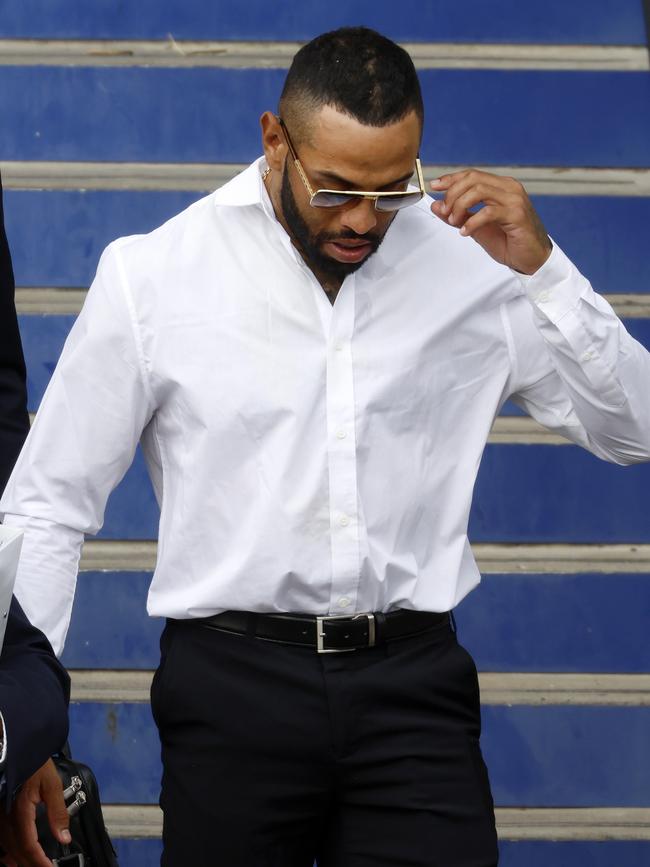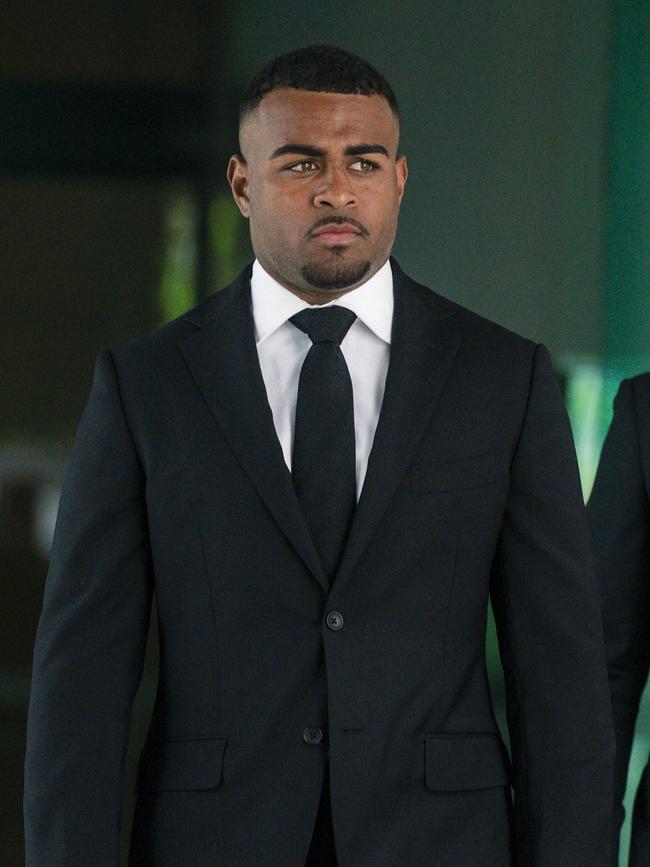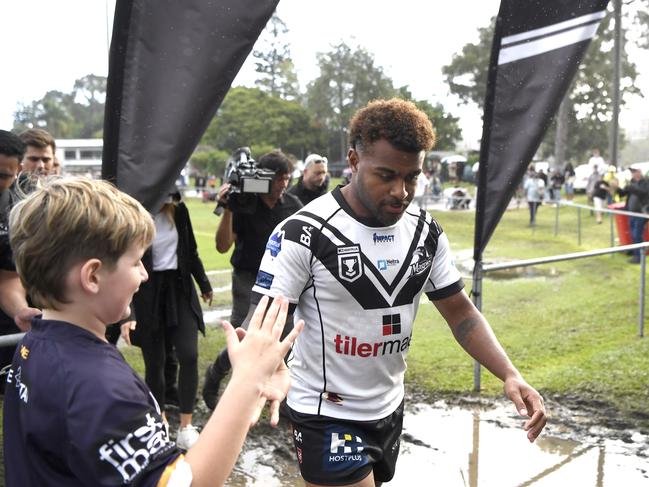‘It’s a problem’: NRL player agents blow the whistle on drug use in rugby league | Survey Results
Rugby league has been given a stark reminder of the ongoing battle with recreational drugs, after an exclusive CODE Sports’ survey revealed a number of player agents believed drug use was one of the biggest problems facing the game. SEE THE RESULTS
NRL
Don't miss out on the headlines from NRL. Followed categories will be added to My News.
Rugby league – and society in general – has been given a stark reminder of the ongoing battle with recreational drugs after nearly two-thirds of player agents revealed drug use was a problem in the NRL’s playing ranks.
In a rugby league first, more than 50 of the game’s longest-serving and most significant accredited player agents have taken part in an exclusive Code Sports survey, delivering responses which will have unprecedented ramifications for the entire game.
Among the most significant was the revelation that 62 per cent of player agents said drug use was still a problem for the code.
The NRL declined to comment on the agents’ concerns, but the sport has one of the most stringent and diligent testing policies in Australian sport, having finetuned their regime over a number of years.
Not only are players subject to testing by Sports Integrity Australia, but they also face illicit in-house testing for recreational drugs and can be target tested if the game fears a player has a problem.
The regime is designed not necessarily to sanction players, but to help those who may have an issue. According to the players’ minders, some clearly still decide to roll the dice even though there are potential sanctions if they are caught.
“Any professional athlete that engages in illicit drug use is a problem for the NRL, whether it’s five players or 50,” said Penrith grand final hero Scott Sattler, now an accredited agent.
“I say this based on things I’ve observed over the years working in the industry, which concern me as a rugby league fan, not just as an agent.
“Everyone naturally says it’s a societal issue but a lot of employees in society aren’t bound by illicit drug policies.
“If you are a professional athlete, male or female, and you are dabbling in performance-enhancing or social drugs, there should be no place in the game for you, simple as that.”
While the agents insist drug use is an issue, anecdotal evidence in recent years suggests it is restricted to only a minority of players.
There have been a handful of incidents in recent seasons involving the likes of Ezra Mam, Josh Addo-Carr and Braydon Trindall – all of whom were sanctioned by the NRL after police involvement.


Mam is due to make his NRL return this weekend after serving a nine-game suspension over an off-season drug-driving incident last October.
Mam found himself in trouble over the holiday period, which is eight weeks in the off-season, when players are not subject to the game’s testing policy.
“Social drugs are a real problem for the game,” player agent Shaun Pyne said.
“It’s an issue in society, not just in the game, but the standards in the NRL need to be higher and they should be higher.
“You only have to look at players who have had issues with drugs the last few years. Ezra Mam is a case in point.
“Because alcohol takes so long to get out of your system and with the way it would affect guys at training, recreational drugs are seen as an option for players.
“I have never done drugs, but for NRL players it is so easily accessible. They mix in high-profile circles and they have the disposable income to be able to afford to buy cocaine.
“It’s a concern for the NRL, 100 per cent.”
Pyne was the former player manager for Cameron Munster and helped put the Melbourne and Queensland Origin star in rehab for gambling and binge-drinking following the white powder video scandal four years ago.
Munster insisted at the time that, despite being fined and suspended by the NRL, he was not treated for drug use.
Pyne echoed the thoughts of many when he said that Mam should have received a heavier sanction from head office.
“I’m happy to be quoted on the record with my feelings on Ezra Mam,” Pyne said.

“He got a nine-game ban for driving with drugs in his system and injuring innocent people, including a child, with no licence. That’s one game more than Spencer Leniu for an on-field slur.
“The penalty wasn’t good enough. Any player found to have used cocaine should be banned for one year immediately. And they should be publicly named.
“At the moment, if you are a first offender, it’s kept secret. Ezra Mam should have got a 12-month ban, and then the Broncos should get the first right to retain him given they were his incumbent club.
“The NRL needs to send a stronger message – drugs of any kind won’t be tolerated.”
GAMBLING CONCERNS
The agents’ survey also found that 75 per cent of player managers believed that gambling was a problem with players.
Many of the player managers revealed in the survey that a major concern they had for their clients was their struggle to manage their finances as they lived a high income life with a large amount of time off.
In response to the question about what was the biggest issues players faced, one agent said “Money management, particularly when they receive big money when they are young, when they are under 20, 21 years of age”.
Other responses included “financial education and understanding”, “high income/high amount of time off”, “poor decision making away from the game” and “lack of guidance off the field”.
Originally published as ‘It’s a problem’: NRL player agents blow the whistle on drug use in rugby league | Survey Results


